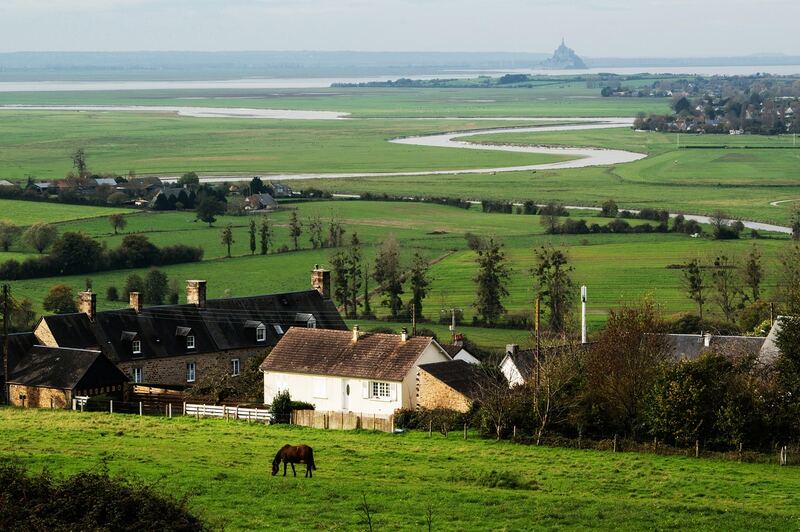Spiritual communities provide a space for individuals to connect with like-minded people and live their lives as a journey of personal growth and collective transformation. These kind of communities have become a beacon in recent years for those seeking deeper meaning and connection in an increasingly crazy world. Many are questioning traditional ways of living and searching for alternative ways to nurture their mind, body, and soul.
Let’s say you’re a spiritual person searching for a new place to live. The main question is: Is living in a spiritual community the right path for you? These are two different things—being spiritual and living in a spiritual community. Both offer unique experiences, but living full-time in a such a community setting comes with its own set of challenges and rewards.
This article is based on my research into what it really means to live in a spiritual community—how your days might unfold, and the pros and cons of this lifestyle. By the end, I hope you’ll have a clearer understanding of whether this type of living could be the right path for you.
Table of Contents
What Does Living in Spiritual Communities Really Mean?
Living in a spiritual community means creating a life with people who share similar values, beliefs, and a commitment to growth. These communities often prioritise mindfulness, collective well-being, sustainability, and deep spiritual practice. Whether you’re living on a farm, in a retreat center, in an eco-village, or in a more urban setting, these communities are designed to foster connection—not just with the land and each other, but with your higher self.
Being part of a spiritual community isn’t about simply attending group meditations or prayer circles. It’s about weaving spirituality into every aspect of daily life—from the food you eat to how you engage with others, to your intentions behind every action. Life here is a constant practice of being present, cultivating compassion, and nurturing the soul.
How Could a Day in a Spiritual Community Look Like?
One of the most important things you should consider when thinking about living in a spiritual community is what your days will look like. Is it a peaceful, quiet environment where you get to relax and reflect, or is it a place of constant activity, collaboration, and engagement?
In many spiritual communities, the day begins with a shared morning practice—whether that’s meditation, yoga, or a spiritual gathering where everyone comes together to set the tone for the day. After this shared practice, the community might come together to help with the upkeep of the space—gardening, cleaning, cooking, or working on sustainable projects. There’s a sense of collective effort and shared responsibility that creates a deep connection to the land and each other.
Meals are often shared as a group and tend to be simple, nourishing, and prepared with love. Some communities focus on organic farming, and the food you eat is grown with sustainability in mind. This provides an opportunity for deeper connection with the Earth, where your food comes from, and how it’s prepared.
Afternoons may include more personal time for reflection, study, or creative pursuits, with some communities offering classes or workshops on spiritual practices. Many spiritual communities also offer communal projects or opportunities to volunteer and contribute to the greater good.
Evenings are typically spent reflecting on the day, gathering for shared meals or meditation, or perhaps enjoying quiet time with others. Community members often end the day by gathering in a circle, sharing their thoughts, or engaging in group activities to deepen the sense of connection.

The Pros of Living in Spiritual Communities
1. Deep Connection and Belonging
One of the greatest gifts of living in a spiritual community is the profound connection you experience—not just with others, but with yourself. You’re surrounded by people who are walking the same path of self-discovery, making it a space where authentic relationships can grow. There’s a deep sense of belonging that can be incredibly nourishing for your soul, especially for those who feel disconnected from mainstream society.
2. Support for Personal Growth
Living in a spiritual community offers an immersive environment for personal and spiritual growth. You’re encouraged to reflect, deepen your practices, and continually evolve. With people around you who share a commitment to growth, you’ll have a built-in support system that fosters accountability and inspiration. Whether it’s through group activities, one-on-one support, or shared wisdom, this environment accelerates your journey toward becoming your truest self.
3. A Sustainable and Mindful Lifestyle
Many spiritual communities are built on the principles of sustainability homes. This means you’ll often find organic gardens, renewable energy sources, and a focus on minimal waste. It’s an intentional, mindful way of living that aligns with the Earth’s rhythms. If you’re seeking a lifestyle that is in harmony with nature, this can be a transformative and deeply fulfilling experience. Families, in particular, benefit from this environment, where the values of sustainability and environmental care are ingrained in everyday life.
4. A Peaceful, Harmonious Environment
In spiritual communities, there is an emphasis on living peacefully and harmoniously with one another. This is often achieved through collective decision-making, active listening, and mutual respect. These communities also prioritise emotional well-being and healing, providing a safe space for personal exploration. For families, this peaceful environment can be incredibly nurturing, offering a space for children to grow emotionally and spiritually in a supportive and loving environment.
The Challenges of Living in Spiritual Communities
1. Compromise and Adaptation
While spiritual communities offer many rewards, they also require compromise. Living closely with others means navigating different personalities, beliefs, and habits. Although these communities tend to be centered around shared values, clashes in perspectives can still happen. It’s essential to approach spiritual community living with an open heart and a willingness to compromise in order to foster harmony.
2. Limited Privacy
In many spiritual communities, shared spaces and communal living arrangements are the norm. This can feel like a beautiful way to foster connection, but it may be challenging for those who highly value their privacy. Personal space may be limited, and your living arrangement might include shared rooms or communal areas.
3. The Need for Collective Responsibility
Living in a spiritual community means being part of a collective effort. You’ll often be responsible for communal tasks, whether it’s maintaining the grounds, cooking meals, or engaging in group projects. While this fosters a sense of unity and shared purpose, it can also feel like a heavy responsibility, especially when the demands of community living feel intense.

Spiritual Communities vs. Home Practice
1. Personal Space and Privacy
- At Home: When practicing spirituality at home, you have complete control over your space and privacy. You can meditate, perform rituals, or practice yoga whenever you feel like it, in a setting that is entirely your own. There’s no need to compromise your personal time or space.
- In Spiritual Communities: Living in a spiritual community often means sharing space with others. Privacy is limited, as communal living is at the heart of these spaces. If you value personal solitude, you may have to adapt to the idea of sharing your environment and your time with others who are also on their spiritual journeys. This could be a challenge for some people, but it also provides an opportunity for deeper connection.
2. Flexibility vs. Structure
- At Home: You can structure your spiritual practices around your own schedule. If you feel like meditating for 10 minutes or two hours, you can do so without restriction. The pace is entirely up to you.
- In Spiritual Communities: There’s often a set rhythm or schedule to daily life in a spiritual community. Many communities start the day with a collective practice (meditation, chanting, or group discussions) and have communal meals or tasks. While you still have time for individual reflection, the communal rhythm can be less flexible than practicing at home. Some people thrive in this structure, but others might find it limiting.
3. Individual vs. Collective Growth
- At Home: When practicing spirituality on your own, your growth and progress are personal. You can focus solely on your journey and dive into practices that resonate most with you. There’s no need to explain your practices or adapt them to others. You work on your own pace and in the way that feels best to you.
- In Spiritual Communities: Living in a spiritual community is about collective growth. You’re not just focusing on your spiritual path but also engaging with others’ practices, beliefs, and experiences. This can lead to a more expansive growth process as you learn from others and contribute to the collective wisdom. However, it also means that you may need to compromise or adapt your practices to fit within the community’s shared vision and goals.
4. Independence vs. Interdependence
- At Home: You have complete independence. You decide when and how you practice your spirituality, with no need to coordinate with anyone else. If you feel like changing your practices or beliefs, you can do so freely, without considering how it impacts others.
- In Spiritual Communities: Spiritual communities are based on interdependence, which means that you’re not living in isolation. You’ll be engaging in shared practices, decision-making, and possibly co-creating the community’s structure. While this sense of community is beautiful and enriching, it can also require compromise and cooperation. You may need to sacrifice certain personal preferences for the good of the group.
5. Support vs. Solitude
- At Home: Practicing on your own can sometimes feel isolating, especially if you’re seeking deep connection with others on the same spiritual journey. While you can engage with online groups or read spiritual texts, the experience of being physically alone can create a sense of solitude.
- In Spiritual Communities: One of the greatest benefits of spiritual community living is the constant support and connection. You have people around you who share your values and can offer guidance, encouragement, and understanding. You’re not walking the spiritual path alone; you have a built-in support system. However, this constant connection may feel intense at times, as you’re surrounded by others who are also on their own spiritual journeys.

Do You Have to Sacrifice Something?
Great Question and yes, in both cases—whether you’re practicing at home or living in a spiritual community—there are sacrifices involved. The key difference is the nature of those sacrifices:
- At Home, you sacrifice the opportunity for communal growth and the deeper, daily connection that comes with living alongside others who share your spiritual path.
- In Spiritual Communities, you may have to sacrifice personal space, privacy, and flexibility in your spiritual practice. You also might need to compromise certain beliefs or practices to fit within the community’s shared values and goals.
Ultimately, the decision to live in a spiritual community or practice spirituality at home depends on your needs. If you’re seeking more solitude and personal flexibility, practicing at home might be your path. However, if you’re craving deeper connection, collective growth, and shared spiritual experiences, living in a spiritual community could provide the rich environment you’re looking for.
So, now … Living in Spiritual Communities – could that be Your Happy Lifestyle?
My tip: Go and visit some spiritual communities, attend events, or engage in conversations with current members to get a better feel for the energy and environment and whether it aligns with your vision of your happy place.
Some more Questions about Spiritual Communities
Are spiritual communities only for individuals, or can families thrive there too?
I found out, that families can absolutely thrive in spiritual communities. Many communities are designed to support people of all ages, including children.
What should I look for when choosing a spiritual community to join?
Consider factors such as the community’s values, practices, and overall mission. Some communities focus on meditation and mindfulness, while others may have a strong emphasis on sustainability, communal living, or healing practices.
Think about what are your spiritual needs, what kind of living arrangement you prefer, and whether the community’s dynamics and rules feel right for you. Visiting the community and interacting with its members can give you a better sense of whether it’s the right fit.
How do I know if I’m ready for a spiritual community?
If you feel the need to step outside of your comfort zone, enjoy communal life, and engage in deeper spiritual practices with others, then you may be ready. It’s important to reflect on whether you’re comfortable with shared responsibilities, group decision-making, and possibly giving up some of your personal space and privacy in exchange for belonging to a collective.
How do spiritual communities handle disagreements or conflict?
Spiritual communities often approach conflict resolution with compassion, active listening, and mediation. Many communities have established practices for handling disagreements, such as group discussions, consensus decision-making, and facilitated dialogues. The goal is usually to find solutions that benefit the collective and allow for personal growth.
However, like any shared living arrangement, conflicts are inevitable. The key is whether the community fosters an environment of open communication and mutual respect for differing viewpoints.
What’s the cost of living in spiritual communities?
The cost of living in spiritual communities can vary significantly depending on the location, size of the community, and the level of shared resources. Some communities are self-sustaining and ask members to contribute labor in exchange for living costs, while others may charge a fee to cover maintenance, food, and other communal expenses.
It’s important to research each community’s financial structure and understand how costs are managed before committing. Many communities also offer sliding scale fees or volunteer opportunities that reduce costs.
What should I do if I can’t find spiritual communities that resonates with me?
If you can’t find spiritual communities that feel aligned with your values and beliefs, consider creating your own. Start by deciding whether you want to build an online community that can connect people globally or a local group that might eventually meet in person.
Running a global online community opens you up to diverse perspectives and spiritual practices from around the world. If your goal is to meet in person, starting locally online allows you to connect with nearby individuals and organise physical gatherings when the time feels right.





